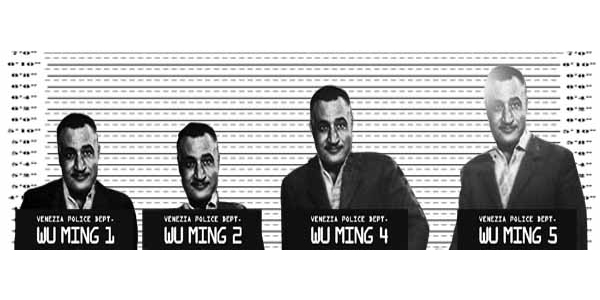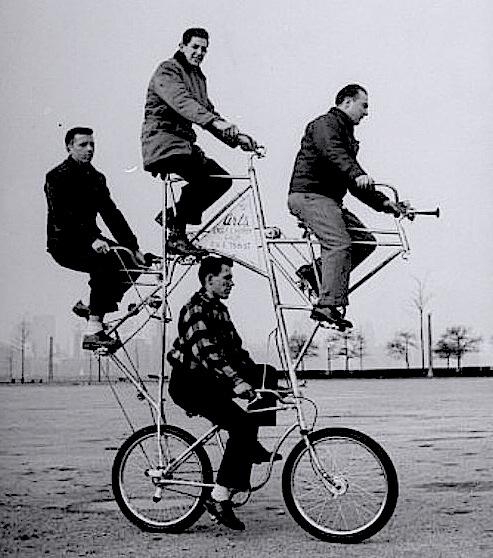Wu Ming Interview
Interview with Wu Ming in Bologna by Stewart Home first published in ArtReview
 Mu Ming is a collective of cultural activists based in Bologna. They are best known for their novels but they also write non-fiction and are involved with music too. Wu Ming means anonymous in Chinese and was chosen because the group is opposed to the cult of celebrity authors. Although they do book promotion tours, they don’t allow photos of themselves to be published. Verso is about to issue their fifth collectively penned novel Altai in English.
Mu Ming is a collective of cultural activists based in Bologna. They are best known for their novels but they also write non-fiction and are involved with music too. Wu Ming means anonymous in Chinese and was chosen because the group is opposed to the cult of celebrity authors. Although they do book promotion tours, they don’t allow photos of themselves to be published. Verso is about to issue their fifth collectively penned novel Altai in English.
The narrator of Altai is Emmanuele De Zante, a sixteenth-century Venetian spy catcher who finds himself accused of being a double agent. De Zante goes on the run and after rediscovering his abandoned Jewish identity, he makes a strategic allegiance with Venice’s Ottoman enemy in the hope of establishing a Jewish homeland. The historical setting is accurate and parallels various geopolitical conflicts in the world today.
After flying in from London, I met Wu Ming 1 and Wu Ming 4 at the Museo d’Arte Moderna di Bologna; also present was Riccardo Balli, a breakbeat DJ and record producer. I’ve known all of them since the 1990s through various underground cultural-cum-political projects. Wu Ming 2 wasn’t due to join the meeting but I had been expecting Wu Ming 5. Wu Ming 1 apologised for the absence – Wu Ming 5’s punk band Nabat were playing a gig in Spain. Music is important to the entire collective and I noticed that Wu Ming 1 had the latest issue of Musica Jazz magazine in his hand. His book New Thing (2004), and the CD compilation The Old New Thing: A Free Jazz Anthology (2007), testify to his passion for musicians such as Albert Ayler and Sun Ra. He told me that his CD irked free-jazz diehards because of the way it was mixed, and he was clearly very happy about this.
When I mentioned Altai Wu Ming 1 laughed: “The translations take so long to appear! We haven’t talked about that book for years. It’s from 2009. We’ll have to speak about it again when we go to London for the UK publication.” After a little more conversation both Wu Mings seemed to have rekindled their interest in their old work and asked me if I understood the parallels between the historical world Altai deals with and the political situation today. I told them this wasn’t a problem for me but I quickly gave up trying to disentangle their fiction from historical fact because the two were so closely interwoven. There was a gleam in Wu Ming 1’s eye when he replied: “That’s because we worked the fiction into tiny historical cracks.”
 The Wu Mings went on to tell me that they’re both happy with the reception of their collectively written novels in England and France. They stressed that the literary and political elements are of equal importance, and they clearly don’t like it when their books are discussed purely in terms of one or the other. Wu Ming 4 was particularly unhappy about a translation of his solo novel Stella del mattino (2008; ‘Star of the Morning’ – not available in English) being promoted as metafiction. The book may feature a number of famous English language writers as characters, but it also has a political content the Wu Mings don’t want ignored.
The Wu Mings went on to tell me that they’re both happy with the reception of their collectively written novels in England and France. They stressed that the literary and political elements are of equal importance, and they clearly don’t like it when their books are discussed purely in terms of one or the other. Wu Ming 4 was particularly unhappy about a translation of his solo novel Stella del mattino (2008; ‘Star of the Morning’ – not available in English) being promoted as metafiction. The book may feature a number of famous English language writers as characters, but it also has a political content the Wu Mings don’t want ignored.
Read the full articel at ArtReview

